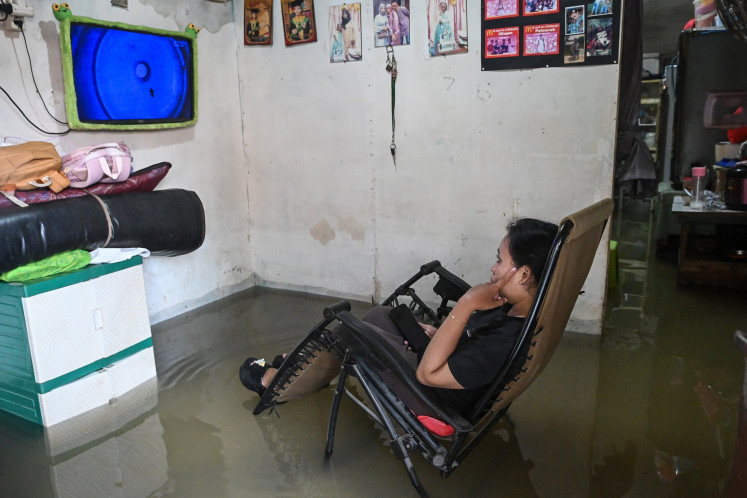Popular Reads
Top Results
Can't find what you're looking for?
View all search resultsPopular Reads
Top Results
Can't find what you're looking for?
View all search resultsBank Mandiri eyes growth in consumer
State-owned lender Bank Mandiri, Indonesia’s largest bank by assets, is digging more into the consumer segment after having assessed a recent change in people’s consumption habits as a result of improved welfare in Southeast Asia’s largest economy
Change text size
Gift Premium Articles
to Anyone
S
tate-owned lender Bank Mandiri, Indonesia’s largest bank by assets, is digging more into the consumer segment after having assessed a recent change in people’s consumption habits as a result of improved welfare in Southeast Asia’s largest economy.
With the changing consumer habits in mind, the publicly listed bank expects to boost its consumer loan growth by above 20 percent this year, Bank Mandiri retail banking director Tardi said.
The bank booked 20 percent year-on-year (yoy) growth in consumer loans as of June this year, totaling Rp 91.31 trillion (US$6.8 billion).
The consumer loan portfolio contributed more than 13 percent to Bank Mandiri’s overall lending of Rp 682.04 trillion in the first half of this year.
“As the people’s welfare continues to increase, we also want to make the consumer segment as one of the sources of [loan] growth,” Tardi said during a media workshop held by the bank recently.
However, despite its confidence, Mandiri might need to go an extra mile this year as consumer spending has been fairly weak, according to data.
Household consumption, which typically makes up more than half of Indonesia’s gross domestic product (GDP), grew by 4.95 percent year-on-year (yoy) in the second quarter of this year, Central Statistics Agency (BPS) data show.
It contributed to the country’s economic stagnation of 5.01 percent in gross domestic product (GDP) during the second quarter of the year, compared to 5.06 percent in the same period last year.
Weak consumer demand is reflected in car retail sales — a basic indicator of consumption — that dropped by more than 27 percent yoy in June, while motorcycle sales also fell by almost the same figure in the same month.
Moreover, data from the Indonesian Retail Association (Aprindo) show that retail sales climbed 5 to 6 percent month-to-month, far lower than 16.3 percent recorded in the same period last year.
The sluggish consumption may have been caused by, among others, a shift in consumer habits to more online-based transactions, the BPS and other experts say.
A recently published report by Mandiri Institute, an independent think tank of Bank Mandiri, notes that the growth of e-commerce also likely affected shopping habits, as people opted for the convenience of shopping online.
To boost consumer spending, the Indonesian Chamber of Commerce and Industry (Kadin) has suggested that the government temporarily relax certain taxes, such as value-added tax and luxury tax, to encourage people to spend.
Even so, Bank Mandiri seems to be pushing through as it considers the consumer segment to have massive potentials, particularly in property, automobiles and credit cards.
Mandiri’s Tardi noted that the bank’s mortgages for landed houses, for example, grew by 13.8 percent to Rp 31.5 trillion in the second quarter of the year, while automobile loans grew by almost 25 percent in the same period. Credit cards grew by 9.6 percent to Rp 9.6 trillion.
The bank is looking to adopt several strategies, including offering mortgages with a fixed interest rate of 6 percent in the first year or a fixed 6.5 percent for two years for certain developers.
“In terms of credit cards, we are pushing to change the mindset of our customers to perceive it [credit card] as a debt instrument or an intermediary one that can ease transactions,” Tardi said.
Bank Indonesia ordered lenders to slash down their interest rates for credit cards last July to 2.25 percent per month from 2.95 percent per month last year in a bid to boost non-cash transactions.










